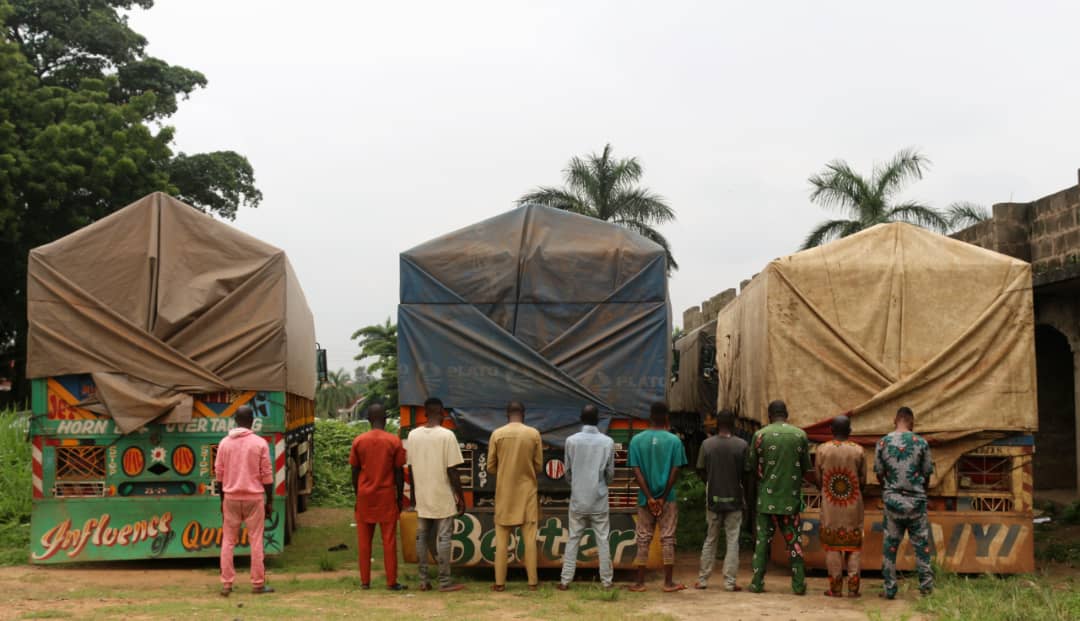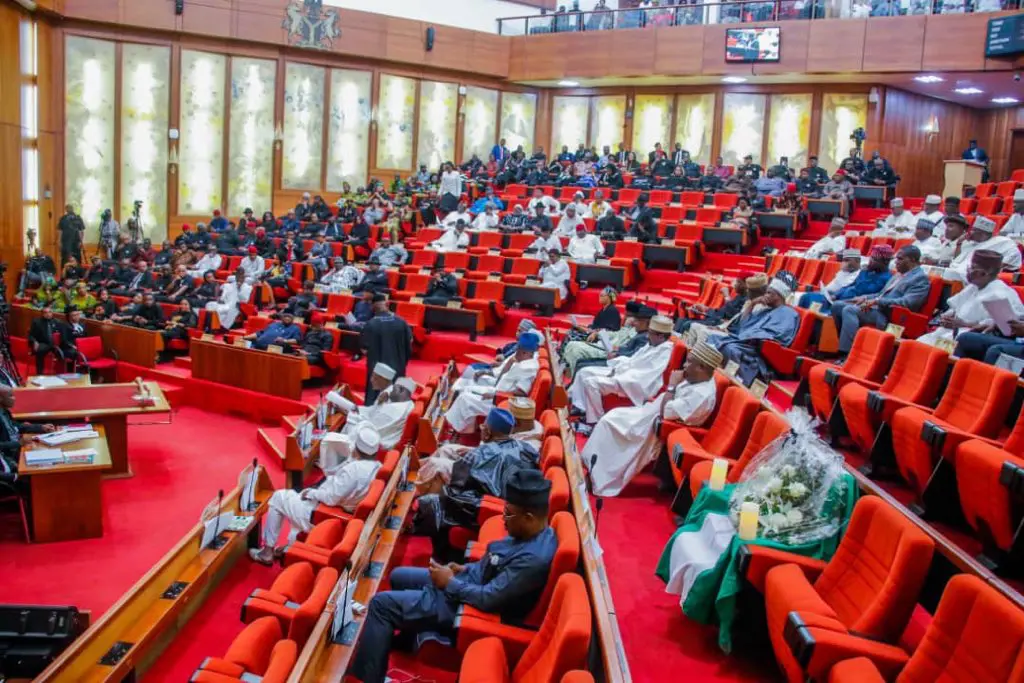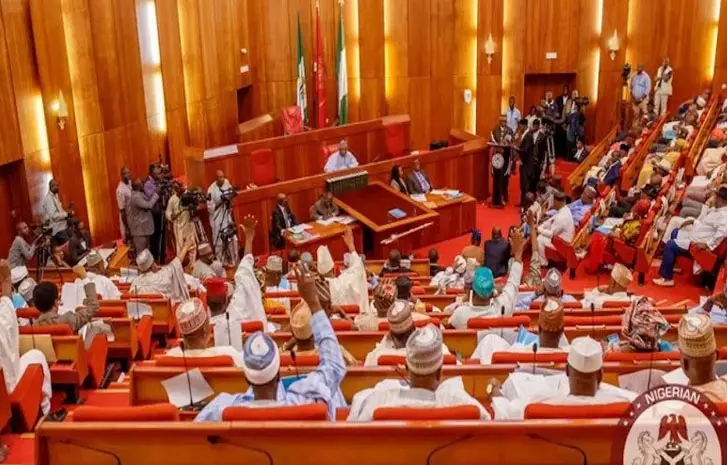Nigeria Breaking News
Nigeria’s Tinubu defends win in disputed presidential vote

Nigeria’s new president-elect, Bola Tinubu, defended the election he just won as credible on Wednesday but Peter Obi, one of his main opponents, planned to challenge the result in court, according to Obi’s running mate.
The main opposition parties have described the outcome of Saturday’s election as fraudulent after new technology that the electoral commission had promised would make the process more transparent instead malfunctioned, eroding trust.
Voter turnout was also low, even by Nigerian standards. With total votes cast at just under 25 million, out of 87 million people with voter identity cards and eligible to vote, turnout was only 29%. The 2019 election saw a 35% turnout.
“I am very happy I have been elected the president of the federal republic of Nigeria,” Tinubu, 70, who was the ruling party’s candidate, said to cheers in the federal capital Abuja. “This is a serious mandate. I hereby accept it.”
A former governor of Lagos and a veteran power broker at the heart of Nigeria’s political class, Tinubu will take the helm of Africa’s most populous country, the biggest economy and top oil producer as it struggles with overlapping crises.
Those include Islamist insurgencies in the northeast, an epidemic of kidnappings for ransom and conflicts between herders and farmers, as well as shortages of cash and fuel, industrial-scale oil theft, high inflation and deep-rooted poverty.
But for now, the focus is on the election itself, in which Tinubu won 37% of the vote, or 8.79 million votes, according to official results announced by the Independent National Electoral Commission (INEC). Nigeria has a population of over 200 million.
“I commend INEC for running a credible election no matter what anybody says,” said Tinubu. “The lapses that were reported, they were relatively few in number and were immaterial to affect the final outcome of the election.”
But Yusuf Datti Baba-Ahmed, Obi’s running mate, said a legal challenge was already being mounted. “We will go to court within the limit of the time. The legal people are putting the papers together,” he said, calling on supporters to remain peaceful.
Nigeria has a long history of political violence, but the atmosphere was calm in the main cities on Wednesday, with many people appearing deflated. In the eyes of God, the man (Tinubu) is not the winner,” trader Mercy Efong said in Awka, in Obi’s home state of Anambra.
Nigeria Civil Society Situation Room, a group that monitored the election, said the outcome was not credible because of what it described as severe logistical failures, a lack of transparency, disruption of voting and violent incidents.
“This is all the more disappointing since the elections were held in an atmosphere in which the people showed remarkable commitment to democracy, eagerly engaging in the electoral process and waiting patiently to vote in very difficult circumstances,” the group said in a statement. Some voters were unable to cast their ballots due to malfunctioning voter card reading machines.
INEC said the main opposition challenger, former vice president and political veteran Atiku Abubakar, won 29%, or 6.98 million votes, while outsider Obi won 25% or 6.1 million votes.
To win, a candidate must get more votes than the others and at least 25% of the ballot in at least two–thirds of Nigeria’s 36 states. Tinubu cleared both hurdles.
Source: SABC
Nigeria Breaking News
EFCC arrests 10 suspected illegal miners in Oyo

Operatives of the Economic and Financial Crimes Commission on Monday arrested ten suspected illegal miners in Ogbomoso, Oyo State. The suspects are Yunusa Adisa, Ganiyu Kazeem, Muideen Babayemi, Sulaiman Usman, Adeleke Waliu, Tiamiyu Rokeeb, Olusola Sunday, Oyedokun Oluwagbemiga, Sulaimon Ishiaq, and Olufimihan Eniola.
A statement on Monday by the EFCC’s spokesperson, Dele Oyewale, said the suspects were arrested with six trucks fully loaded with lithium.
He added that the suspects would be arraigned in court after an investigation into the matter. Oyewale said, “Operatives of the Ibadan Zonal Directorate of the Economic and Financial Crimes Commission have arrested ten suspected illegal miners in Ogbomoso, Oyo State.
“The arrests followed credible intelligence on their suspected involvement in the illegal extraction of solid mineral resources in the state, especially lithium, and their evacuation to unknown destinations. The suspects will be charged to court upon the conclusion of investigations
Source: Dailypost
In other news – My friend warned me against investing in Nigeria – Aliko Dangote
President of the Dangote Group, Aliko Dangote has said a wealthy friend of his, who had previously warned him against investing in Nigeria is now laughing at him for ignoring his advice.
He made this disclosure following reports that the Nigerian Midstream and Downstream Petroleum Regulatory Authority, NMDPRA, criticized the quality of diesel from the Dangote Refinery. Read more
Nigeria Breaking News
Senate and NCWS want domestic staff included in minimum wage

The Nigerian Senate and the National Council of Women Society, NCWS on Monday advocated for the inclusion of domestic servants in Nigeria in the proposed N70,000 minimum wage when it comes into effect. The call was at the National Assembly in Abuja during a public hearing on a bill seeking an Act to provide for the Domestication and Registration of domestic workers and Employers in Nigeria,
The public hearing on the bill sponsored by Senator Babangida Hussaini representing Jigawa North West, was organized by the Senate Committee on Employment, Labour and Productivity chaired by Senator Diket Plang. The Senate’s call for the inclusion of domestic servants in the National Minimum Wage Scheme, especially came from Senator Osita Izunaso representing Imo West, during his remarks at the public hearing.
He said: “As a member of this committee, I feel strongly that part of the provisions to be included in this bill, is to include the domestic workers be it housemaids or servants, in the proposed N70,000 National Minimum wage law. As N70,000 is being planned to be the lowest wage for the lowest public workers, so should be the case for least domestic workers. We are going to put it in the bill for implementation by all employers.”
He, however, suggested that instead of domestication and protection of domestic workers and employers, the intent of the bill should be changed to registration and protection of domestic workers and their employers. In a similar call, the Acting National President of NCWS, Mrs Geraldeen Etuk, argued for the inclusion of domestic servants in the proposed National Minimum Wage law.
However, during an interview at the sideline of the event, the sponsor of the bill, Senator Babangida Hussaini said although he was elated by the general support the bill got from the various stakeholders, the practical implementation of the additional scope of inclusion of domestic workers in the national minimum wage is what is somewhat doubtful.
” There is no point in making a law that cannot be implemented but I’m happy that the generality of stakeholders at the public hearing supported the bill and by extension, the proposed law.
Earlier in his remarks during the session, the Chairman of the Committee, Senator Diket Plang, said an agency will surely be set up for the implementation of the proposed law, but the Ministry of Labour and Productivity will drive the operation from the onset.
Source: Dailypost
In other news – Senate to investigate economic sabotage in petroleum sector, inaugurates Ad-hoc committee
In a bid to tackle saboteurs in the petroleum sector, the Nigerian Senate on Monday inaugurated the Ad-hoc committee to investigate the alleged economic sabotage in the petroleum sector.
Senate President, Godswill Obot Akpabio while reading riot act to saboteurs, said, the nation cannot afford to tolerate any form of economic sabotage at this time, even as the petroleum sector is the backbone of Nigeria’s economy. Read more
Nigeria Breaking News
Senate to investigate economic sabotage in petroleum sector, inaugurates Ad-hoc committee

In a bid to tackle saboteurs in the petroleum sector, the Nigerian Senate on Monday inaugurated the Ad-hoc committee to investigate the alleged economic sabotage in the petroleum sector. Senate President, Godswill Obot Akpabio while reading riot act to saboteurs, said, the nation cannot afford to tolerate any form of economic sabotage at this time, even as the petroleum sector is the backbone of Nigeria’s economy.
He said any threat to the sector was a direct threat to the economic survival of the country and no government in power would tolerate compromise in the integrity of the petroleum industry.Akpabio lamented the age-long economic sabotage in the petroleum industry, particularly the pipeline vandalisation, which was the main reason the Committee was being inaugurated to investigate and turn in reports for further legislative activities.
Akpabio said: “This industry, without a doubt, is the backbone of Nigeria’s economy, and any threat to its integrity is a direct threat to the economic survival of our beloved nation.
“The petroleum sector has been the lifeblood of our economy, providing the revenue that funds our infrastructure, education, healthcare, and numerous other vital sectors. However, the shadow of economic sabotage looms large, threatening to destabilize this critical industry and, by extension, our nation’s financial stability.
“Over the past few years, we have witnessed a concerning trend of alleged malpractices and economic sabotage within the petroleum sector. These allegations range from illegal bunkering, pipeline vandalism, oil theft, and other nefarious activities that have collectively bled our economy dry. The impact of these actions has been devastating, contributing significantly to our current economic downturn.
“Revenue losses from these illegal activities have deprived our nation of the funds needed for development and growth. They have undermined investor confidence, distorted market operations, and exacerbated our economic challenges. It is not just a financial issue; it is a matter of national security and sovereignty. If left unchecked, these acts of sabotage could cripple our economy and hinder our progress for generations to come.”
The Senate President said the upper legislative chamber would act decisively and urgently too, to deal with criminal acts by identifying those behind the ugly trend and bring them to account for their actions.
He charged the Committee to collaborate with relevant agencies, industry experts, and stakeholders to uncover the root causes of the economic sabotage activities. Identify the perpetrators, their methods, and their networks. Senate Leader, Michael Bamidele Opeyemi is the Chairman of the Ad-hoc Committee investigating economic saboteurs in the petroleum sector.
Source: dailypost

 Nigeria Breaking News5 days ago
Nigeria Breaking News5 days agoEFCC arrests 10 suspected illegal miners in Oyo

 Nigeria Breaking News5 days ago
Nigeria Breaking News5 days agoSenate to investigate economic sabotage in petroleum sector, inaugurates Ad-hoc committee

 Nigeria Breaking News5 days ago
Nigeria Breaking News5 days agoMy friend warned me against investing in Nigeria – Aliko Dangote

 Nigeria Breaking News5 days ago
Nigeria Breaking News5 days agoSenate and NCWS want domestic staff included in minimum wage

 Nollywood5 days ago
Nollywood5 days agoEmeka Ike: My Break from Acting Helped Me Build More Brands

 Nollywood5 days ago
Nollywood5 days agoJosh2funny Boasts: I Have No Competitor in the Comedy Industry














